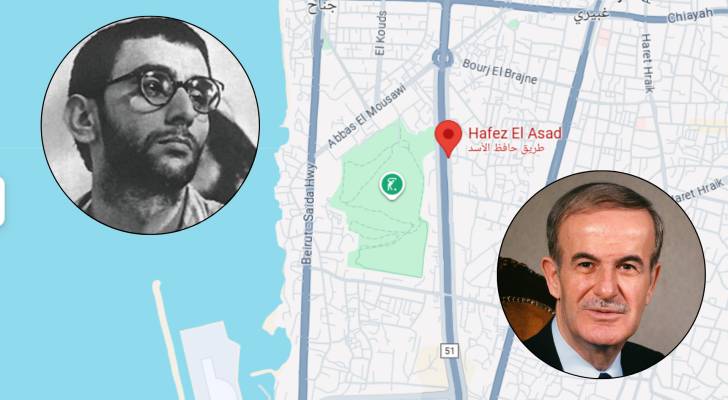Screencap of Hafez Al-Assad Avenue in Beirut
Lebanon renames Hafez al-Assad road in honor of artist Ziad Rahbani
Lebanon has officially renamed a major road that once bore the name of former Syrian president Hafez al-Assad, choosing instead to honor the late Lebanese musician and playwright Ziad Rahbani.
The decision, announced Tuesday, sparked both celebration and controversy across the country.
The thoroughfare, which leads to Beirut’s international airport and runs through the southern suburb of Dahieh, will now carry the name of Ziad Rahbani, a beloved cultural icon who passed away last month at the age of 69.
“This is the decision that made me the happiest,” said Hassan Roumani, a resident near the renamed avenue. “Each time I passed along the Assad road, I felt like Hafez al-Assad and the Syrian army were still in Lebanon. Now psychologically I feel relieved, that period is over, and for the best,” he told Agence France-Presse (AFP).
Independent MP Mark Daou, a vocal critic of Hezbollah, praised the change on social media. “Hafez al-Assad into the dustbin of history, Ziad Rahbani is the name of the airport road forever!” he wrote on X.
The Syrian army first entered Lebanon in 1976, ostensibly as peacekeepers during the early days of the civil war. However, they remained until 2005, finally withdrawing after the assassination of former Prime Minister Rafic Hariri. Monuments honoring the Assad regime were gradually removed in the years that followed.
Ziad Rahbani, son of the legendary singer Fairuz, was known for blending music with biting political satire. His legacy reshaped the Lebanese cultural landscape over decades and resonated across generations.
Actor Ziad Itani said the street’s previous name evoked painful memories for many. “Hafez al-Assad is associated with dark periods in Lebanese history, marked by massacres, abuses and assassinations,” he told AFP.
But the decision has not been welcomed by all. Supporters of Hezbollah criticized the change as politically charged. Faysal Abdelsater, a commentator close to the group, called it “the result of political malice” and urged local authorities to reverse it.
The name change comes amid a broader shift in Lebanese politics. Alongside the announcement, the government revealed that it has instructed the Lebanese army to draft a plan to disarm Hezbollah by year’s end.




